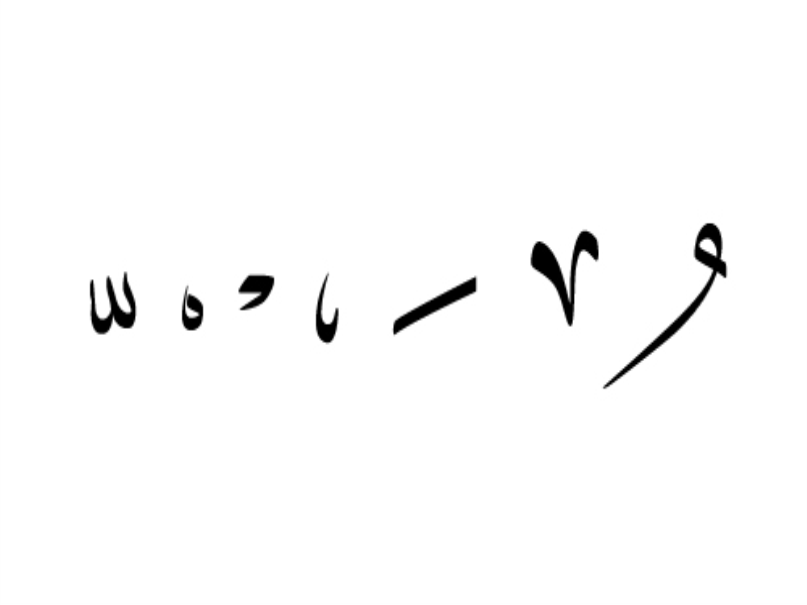🤏Arabic Level 1, Activity 02: “الحِرِكِات القَصِيرَة / Short Vowels” (Face-to-Face/Online)

Description: In this activity, students will practice using the short vowels in a word. They will also practice how to write أ،ب،ت،ث in the first\middle\end of a word.
Semantic Topics:
كسرة، فتحة، ضمة، سكون، أرنب، بطة، مفتاح، مثلث, short vowels, fat-ham, dhamma, kasra
Grammatical Structures:
short vowels, الحركات القصيرة
Products: Choosing the correct answer on the slideshow.
Practices: Using the short vowels in a word by choosing the correct position for the letter.
Perspectives: The importance of using short vowels in the word. It may change the whole meaning.
- Standard 1.1: Students engage in conversations or correspondence in Arabic to provide and obtain information, express feelings and emotions, and exchange opinions.
- Standard 1.2: Students understand and interpret spoken and written Arabic on a variety of topics.
- Standard 4.1: Students demonstrate an understanding of the nature of language through comparisons of Arabic and their own languages.
Idaho Content Standards for World Languages:
- COMM 1.1: Interact and negotiate meaning (spoken, signed, written conversation) to share information, reactions, feelings, and opinions.
- COMM 2.1: Understand, interpret, and analyze what is heard, read, or viewed on a variety of topics.
- COMP 1.1: Observe formal and informal forms of language.
- COMP 1.2: Identify patterns and explain discrepancies in the sounds and the writing system in the target language.
NCSSFL-ACTFL Can-Do Statements:
- I can differentiate between short vowels.
- I can pronounce short vowels with some letters.
- I can use short vowels in a word.
- I can recognize and write أ، ب، ت، ث، in the first\middle\end of the word.
Materials Needed:
- Google Slide Presentation
- A whiteboard or notebook for each student
Warm-Up
- Greet students in Arabic السلام عليكم جميعاً and then share your screen with students and pull up the slide presentation. And don’t forget to press on Slideshow.
رحب بالطلاب باللغة العربية( السلام عليكم جميعاً) ، ثم شارك شاشتك مع الطلاب وافتح العرض التقديمي. ولا تنس الضغط على Slideshow. - Move to the next slide with the “Can-Do Statements” and read each Can-Do statement in English.
انتقل إلى الشريحة التالية “Can-Do” واقرأ كل عبارة Can-Do باللغة الإنجليزية. - Next, move to slide 3, which represents the Warm-up. Ask students to read the letters and write them on white paper.
بعد ذلك ، انتقل إلى الشريحة 3 التي تمثل “warm up”. اطلب من الطلاب قراءة الحروف وكتابتها على ورقة بيضاء. - Then, move to the next slides, read the letters with the short vowels, and ask the students to repeat after you.
بعد ذلك ، انتقل إلى الشرائح التالية ، واقرأ الأحرف التي تحتوي على الحركات القصيرة ، واطلب من الطلاب التكرار بعدك.
Main Activity
- Now we are moving to the next part, which is practicing أ، ب، ت، ث، in the first\middle\end of the word.
الآن ننتقل إلى الجزء التالي وهو ممارسة أ ، ب ، ت ، ث ، في أول \ وسط \ نهاية الكلمة. - The activity will be asking students to choose the right position for the letter shown in the presentation slide.
سيطلب النشاط من الطلاب اختيار الموضع المناسب للحرف الموضح في شريحة العرض التقديمي. - The correct answer will not appear until you click the mouse button.
لن تظهر الإجابة الصحيحة حتى تضغط على زر الفأرة. - Ask students to take their time thinking before you click the mouse.
اطلب من الطلاب أن يأخذوا وقتهم في التفكير قبل النقر على زر الفأرة. - Repeat the same thing until slide 20.
كرر الأمر نفسه حتى الشريحة 20.Wrap-Up
- Ask students if they have any questions.
اسأل الطلاب إذا كان لديهم أي أسئلة.
End of Activity
- Ask students if they have any questions.
- Read Can-Do statements once more and have students evaluate their confidence.
(Use thumbs up/thumbs down or download our student cards.) - Encourage students to be honest in their self-evaluation.
- Pay attention, and try to use feedback for future activities!
NCSSFL-ACTFL Can-Do Statements:
- I can differentiate between short vowels.
- I can pronounce short vowels with some letters.
- I can use short vowels in a word.
- I can recognize and write أ، ب، ت، ث، in the first\middle\end of the word.

